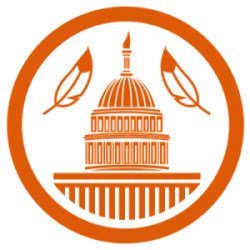Exodus Continues Of Unlicensed Internet Poker Sites From Regulated Markets

Since three US states regulated their online poker markets last year, these licensed online gambling sites have continued squeezing their unlicensed counterparts out of the country’s domestic market with all indications pointing to the fact they will eventually be put out of business altogether.
In New Jersey and Delaware, for instance, the Merge Poker Network (MPN), which currently is one of the biggest US-facing unlicensed internet poker networks with a seven-day average of around 850 cash players, has already decided to abandon these regulated markets, with recent reports indicating Merge skins are also beginning to do likewise in the Nevada market as well. Confirming the new policy, Carbon Poker told onlinepokerreport in January:
“Regrettably, we no longer offer online gaming services to members in New Jersey and Delaware. This decision was made after much consideration.”
Rising payment processor fees an unprofitable proposition
While US-friendly online poker sites continue to operate in the grey legal area of unregulated states, regulated online gambling in New Jersey and Delaware have made such activities explicitly illegal in their own jurisdictions. However, this in its self is unlikely to have been the main deterrent for offshore poker rooms, who are more likely to have been put off by difficulties in organizing viable payment processing at a reasonable cost.
In other words, payment processors are charging higher premiums for their services as they are forced to offset the increasing threat of fines and penalties from regulated market watchdogs. If the trend continues, then online poker sites will eventually find it an unprofitable proposition to operate under such conditions.
Regulators looking to penalize unlicensed operators
Nevertheless, regulated states have also started implementing clear laws against unlicensed operators as they seek to protect their own nascent online gambling industries. Of paramount importance in their stance is ensuring they do not disadvantage their own domestic licensed operators by allowing offshore sites a competitive edge operating free from either a licensing fees or the 15% taxes levied on all the state’s online gambling revenues.
Furthermore, other offshore sites have even demonstrated an unwillingness to operate in unregulated states which have explicit legislation on the issue and that have shown a propensity to prosecute offenders in the past. Certain Merge Poker Network skins, for instance, have already withdrawn their products from a number of such states, including Washington, New York, Kentucky, and Maryland.
Unregulated sites a sinking ship?
Yet another factor contributing to the exodus away from unregulated online poker sites is the fact gamblers in New Jersey, Delaware and Nevada now have legal alternatives to turn to rather than solely having to rely on illegal offshore operators as they were forced to do pre-Black Friday.
Moreover, the experience of American players who have been waiting years to receive millions of dollars in funds frozen on Full Tilt Poker has severely tarnished the trust they once held in unregulated poker rooms, no matter what their market standing. After three years of waiting, for instance, last month 30,000 players eventually had $82 million returned to them in a first wave of repayments by US Government approved legal administrator Garden City Group, although this still represents just a small amount of the monies still owed by the site overall.
In fact, a Commercial Intelligence (CI) poll conducted last month by the research firm showed that 35% of New Jersey’s online gamblers have already switched from using black market sites to regulated internet rooms, with the trend predicted to continue as players seek greater security and regulatory oversight. This then spells even more trouble for unlicensed operators, as previously their biggest draw was that they possessed bigger player pools to create more attractive playing environments for their customers. As greater numbers of players subsequently abandon unlicensed online sites, and their player bases diminish further, the main reason for playing at unregulated internet room could eventually vanish altogether.
The situation is also likely to accelerate further as regulated online poker sites increasingly smooth out initial technical problems with their products, and increase their marketing efforts. As Moody’s Investors Service senior VP Peggy Holloway, explained in an ABCLocal.go.com news piece in mid-January:
“While internet gaming is starting off slowly, the pace of growth will accelerate as issues with payment processing and geo-location technology are ironed out and operators ramp-up their marketing spending to educate consumers that online gaming is available.”
Highlighting her point, Chad Beynon of Macquarie Capital, also mentioned the following in the same article: “With 7 million adults in New Jersey, and others who may ‘stop in,’ we estimate the market to grow to $200 million to $300m by 2015.. we do note that it’s early and many of the TV advertisements just recently started.”










